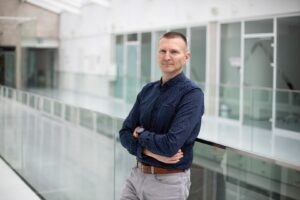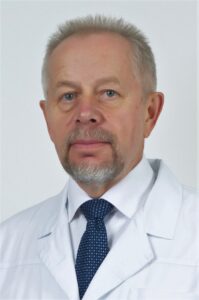The most common type of laryngectomy, i.e. surgical removal of advanced laryngeal cancer, changes the patient’s voice dramatically and can be very disruptive to their normal life. To improve the quality of life of patients after laryngectomy, a team of researchers from Lithuania conducted a study using artificial intelligence (AI) to “clean” the speech of laryngectomy patients.
According to the researchers – Prof Rytis Maskeliūnas from Kaunas University of Technology and Prof Virgilijus Ulozas from Lithuanian University of Health Sciences (LSMU) – laryngeal cancer patients have to undergo extended surgery to partially or completely remove their larynx. After such an operation, the patient’s vocal apparatus remains damaged. Voice function is severely impaired or absent, while breathing takes place through a tracheal opening in the neck, called a tracheostomy.
In such patients, the voice produced by using the remaining anatomical structures that are not naturally designed to generate voice is called a substitute voice.
The Lithuanian researchers’ study addresses the disability of patients who suffered extended laryngeal cancer removal surgery. The main goal of the research is to develop artificial intelligence-based algorithms for the automatic improvement and assessment of substitute voice in patients after laryngeal cancer surgery.
The developed algorithms are being clinically tested at the largest Lithuanian university hospital – the Lithuanian University of Health Sciences Hospital, at the Ear, Nose and Throat Clinic.
The IoT system that “cleans” the language
According to Rytis Maskeliūnas, a researcher at KTU, the change in voice after laryngectomy depends on the severity of the situation – some people have a slight change in their voice, others speak like robots, and others wheeze. Therefore, it is not always easy to understand what the patient wants to say.





